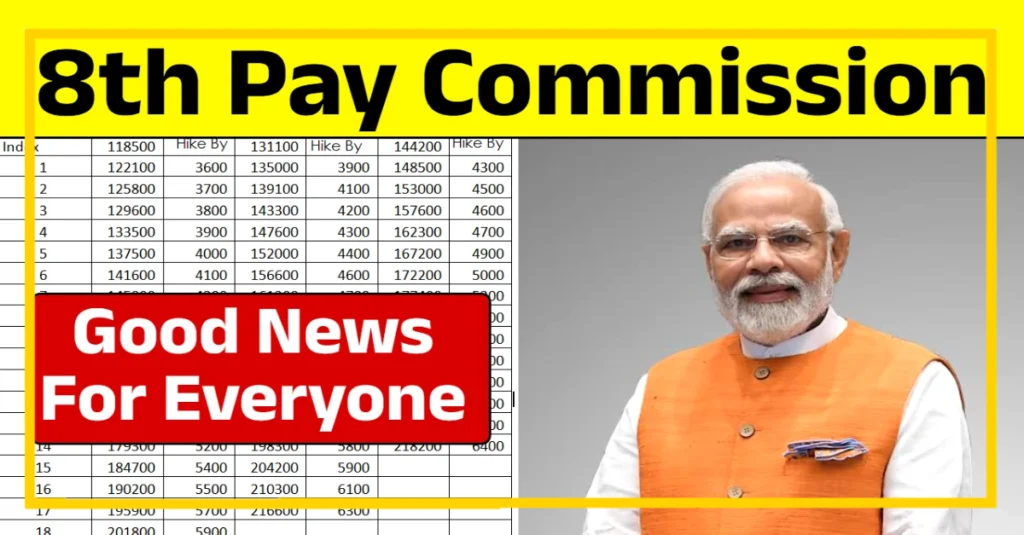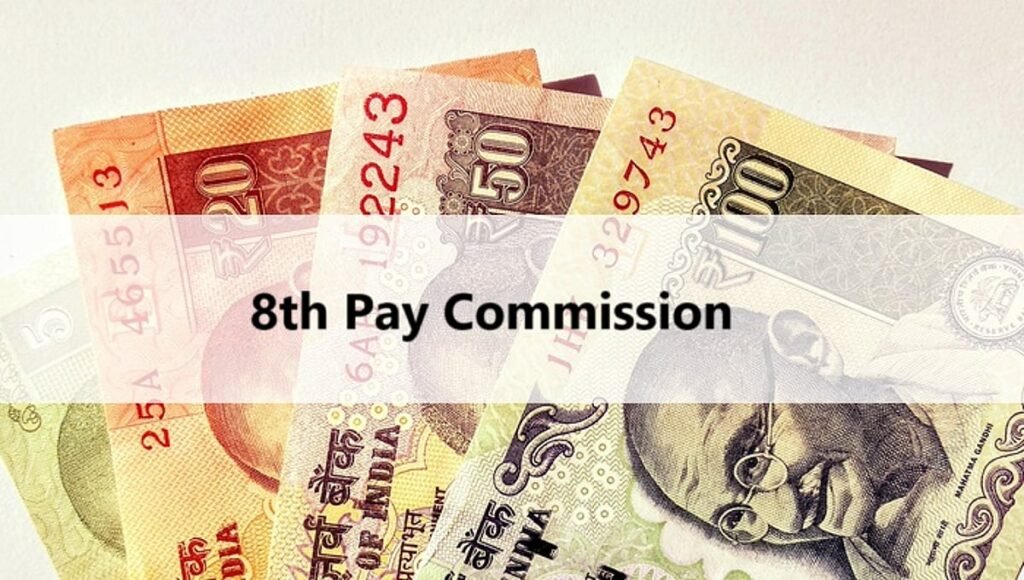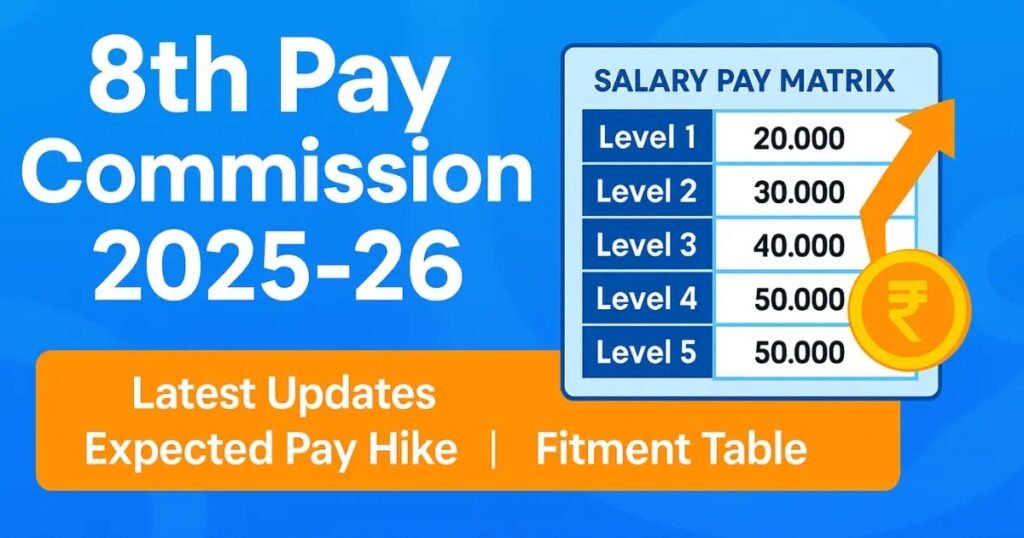Major Overhaul in Salary, Pension, and Benefits Expected for Central Government Employees
New Delhi (Economy India): The Central Government is set to roll out the 8th Central Pay Commission (CPC) from January 1, 2026, a move poised to redefine the financial landscape for over 1.15 crore beneficiaries, including 50 lakh serving employees and 65 lakh pensioners. Approved earlier this year, the Commission’s mandate is to revise salary structures, allowances, and pension systems in line with current economic conditions, inflation, and employee expectations.
The announcement has generated widespread anticipation as staff associations have submitted detailed proposals aimed at restoring benefits, restructuring pay levels, and easing the financial burden of education and healthcare for employees and their families.

8th Pay Commission Proposals
✅ Minimum Basic Salary Could Rise to Rs51,000
If accepted, the recommendations could result in a near 3X jump in Level-1 salaries, with the basic pay expected to increase from Rs18,000 to Rs51,000. This potential hike is based on a proposed fitment factor of up to 2.86, up from 2.57 under the 7th CPC.
✅ Old Pension Scheme (OPS) Restoration for Post-2004 Recruits
A critical demand from staff federations is the reinstatement of the Old Pension Scheme for employees who joined after January 1, 2004. The OPS provides guaranteed pension benefits, unlike the contributory National Pension System (NPS), and its restoration has been a key agenda item in public sector negotiations.

✅ Cashless Medical Facilities Nationwide
The Commission is also reviewing a proposal to implement pan-India cashless healthcare services for employees and pensioners. This would significantly reduce administrative overheads and ensure real-time treatment access under a centralized medical network.
✅ Extended Education Allowance and Hostel Subsidy
To offset rising education costs, the proposal includes:
- Child Education Allowance for school-going children
- Hostel Subsidy extended up to post-graduate level
These reforms aim to alleviate the financial burden of quality education on government families.
📊 Suggested Merger of Pay Levels for Equitable Growth
A unique recommendation is to merge lower pay levels for better salary parity and faster promotions:
| Current Pay Level | Proposed Merge |
|---|---|
| Level 1 & 2 | Unified |
| Level 3 & 4 | Unified |
| Level 5 & 6 | Unified |
This restructuring could remove existing pay disparities and boost morale, especially among entry-level employees.

📉 Comparison with 7th Pay Commission
| Component | 7th CPC (2016) | 8th CPC (Expected 2026) |
|---|---|---|
| Minimum Basic Pay | Rs18,000 | Rs51,000 (Proposed) |
| Fitment Factor | 2.57 | 2.86 (Expected) |
| Minimum Pension | Rs9,000 | To be revised |
| Health Coverage | CGHS (Limited) | Cashless Nationwide |
| Education Allowance | Till class 12 | Post-graduation Level |
💬 Why the 8th Pay Commission Is Crucial Now
India’s current economic situation, high inflation, and rising living costs demand a timely review of compensation structures for public servants. The 8th CPC is expected to:
- Align wages with market inflation
- Reduce attrition in government services
- Ensure social security for pensioners
- Standardize career growth trajectories
🗓️ Timeline and Expectations
- January 16, 2025: Commission approved by Union Government
- Mid-2025: Stakeholder consultations and proposal reviews
- Late 2025: Official recommendations to be submitted
- January 1, 2026: Implementation date
If implemented as proposed, the 8th Pay Commission will not only boost the purchasing power of lakhs of Indian families but also revitalize trust in public employment. With critical recommendations like OPS restoration, salary restructuring, and healthcare modernization, the 8th CPC could become one of the most impactful reforms in recent decades.
As the countdown begins, government employees, pensioners, and policy experts alike await the final recommendations with high hopes.
(Economy India)













